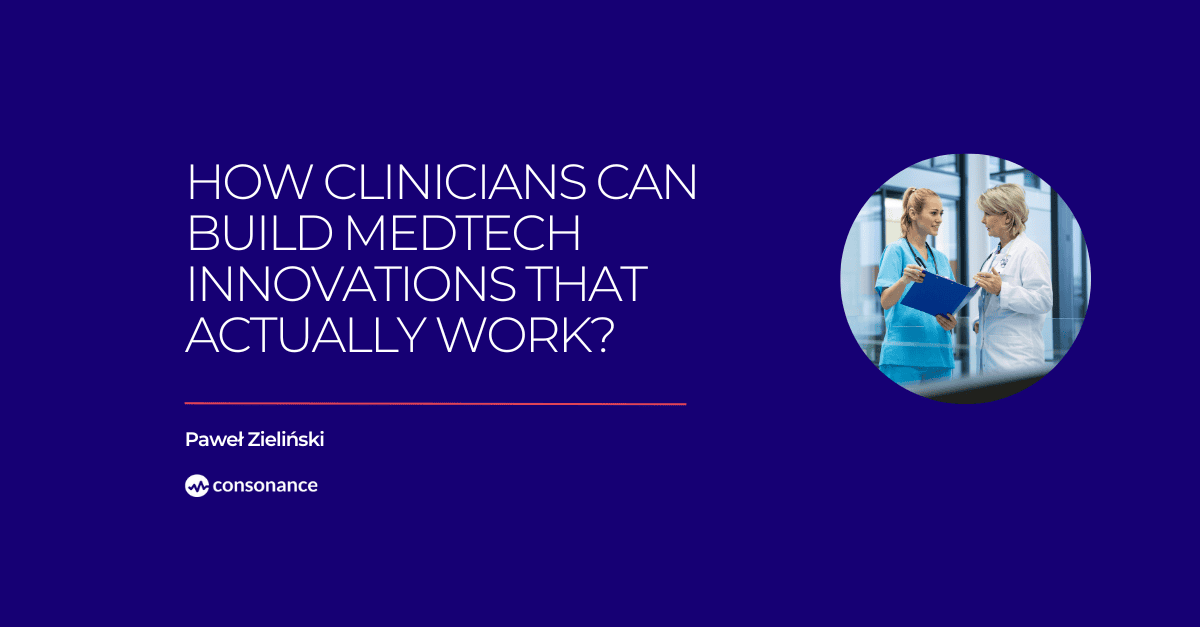Blog
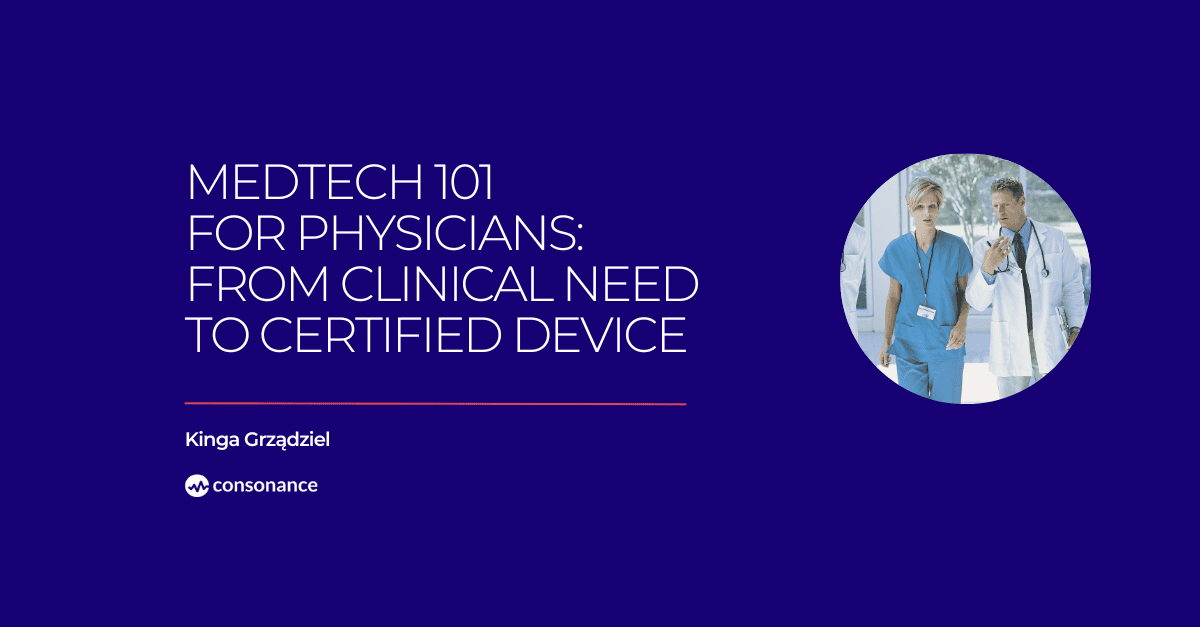 Every day spent at a patient’s bedside brings new experiences. Thousands of hours of work, observation, and conversations… You’ve probably wondered more than once if there should be a market solution for some of your patients’ ailments – but in reality, there isn’t one. Have you ever thought about what you could do in such a situation?
Every day spent at a patient’s bedside brings new experiences. Thousands of hours of work, observation, and conversations… You’ve probably wondered more than once if there should be a market solution for some of your patients’ ailments – but in reality, there isn’t one. Have you ever thought about what you could do in such a situation?
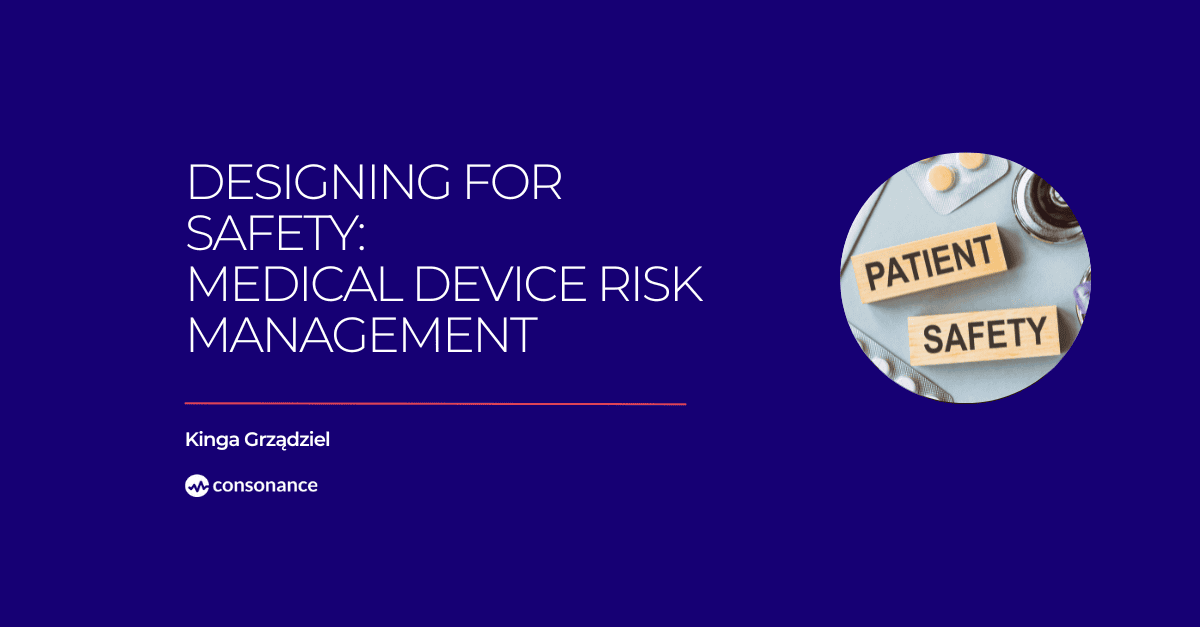 The primary goal of any innovator in the field of medical technology is to develop a device that fills a market gap and addresses an unmet clinical need. While design, prototyping, manufacturing, and innovation form the foundation of medical device development, one must not lose sight of the most critical factor, user safety.
The primary goal of any innovator in the field of medical technology is to develop a device that fills a market gap and addresses an unmet clinical need. While design, prototyping, manufacturing, and innovation form the foundation of medical device development, one must not lose sight of the most critical factor, user safety.
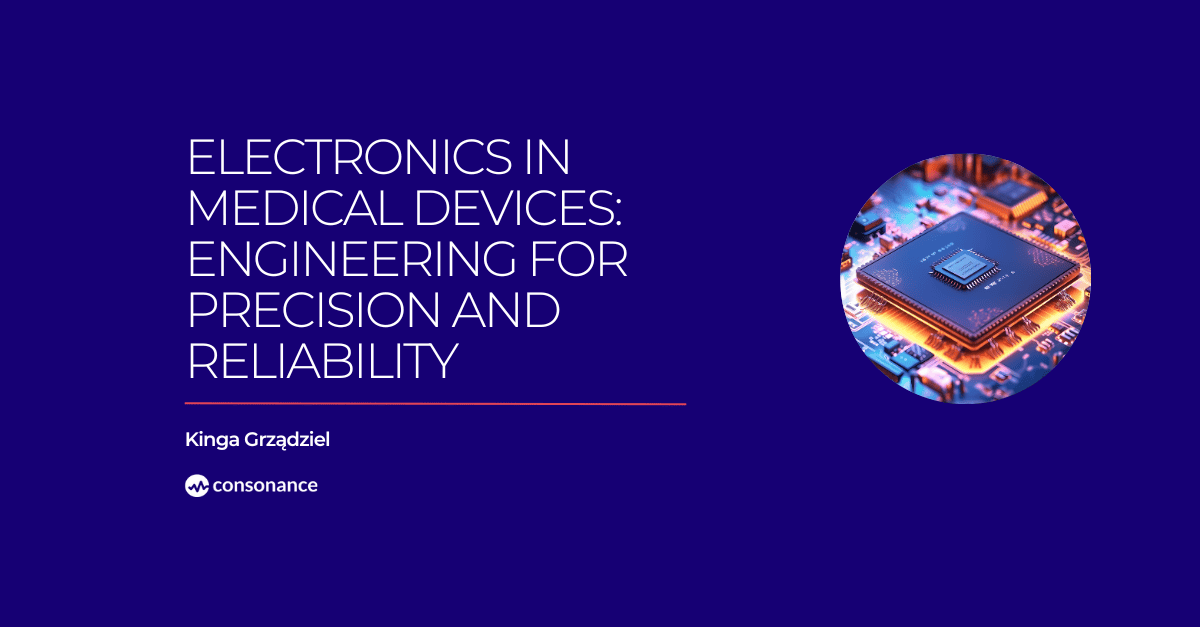 Electronics in medical devices allows us to check our blood pressure with automatic monitors at home, measure our temperature with electronic thermometers, or rely on hearing aids. In hospitals and clinics, doctors use electrocardiographs, MRIs, defibrillators, and ventilators to keep patients safe and healthy. Pretty important job to do, isn’t it?
Electronics in medical devices allows us to check our blood pressure with automatic monitors at home, measure our temperature with electronic thermometers, or rely on hearing aids. In hospitals and clinics, doctors use electrocardiographs, MRIs, defibrillators, and ventilators to keep patients safe and healthy. Pretty important job to do, isn’t it?
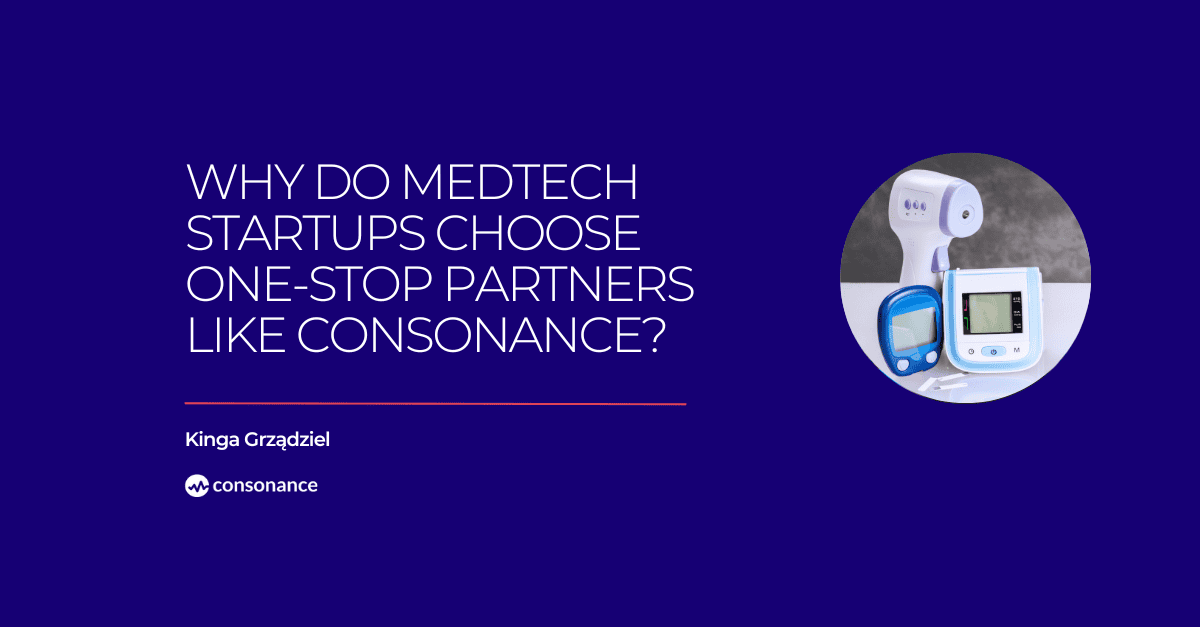 Bringing a new medical device to market is a complex and, at first glance, overwhelming process. MedTech startups often emerge from creative chaos, which, after countless hours of intensive work, evolves into a finished, functional product. It all begins with an idea sparked by a doctor, business partners, or even a group of scientists.
Bringing a new medical device to market is a complex and, at first glance, overwhelming process. MedTech startups often emerge from creative chaos, which, after countless hours of intensive work, evolves into a finished, functional product. It all begins with an idea sparked by a doctor, business partners, or even a group of scientists.
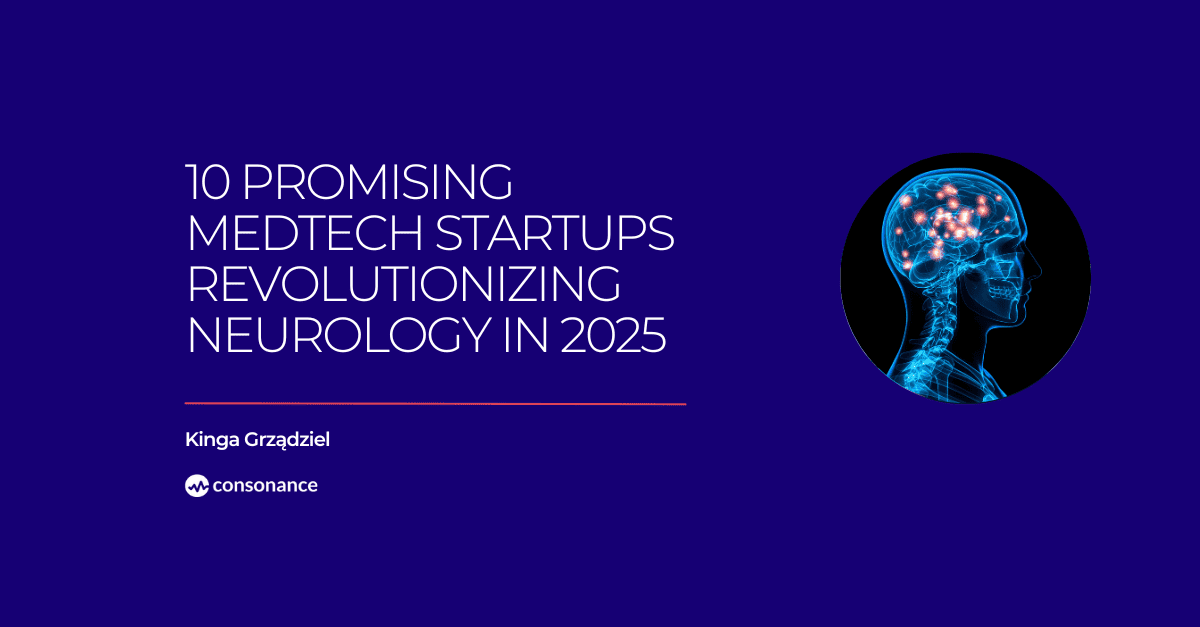 Today, more than 3 billion people worldwide are affected by neurological conditions, making them one of the leading causes of disease and disability globally. As the population continues to age, the number of individuals suffering from central nervous system disorders is expected to rise, driving increased demand for innovative medical technologies.
Today, more than 3 billion people worldwide are affected by neurological conditions, making them one of the leading causes of disease and disability globally. As the population continues to age, the number of individuals suffering from central nervous system disorders is expected to rise, driving increased demand for innovative medical technologies.
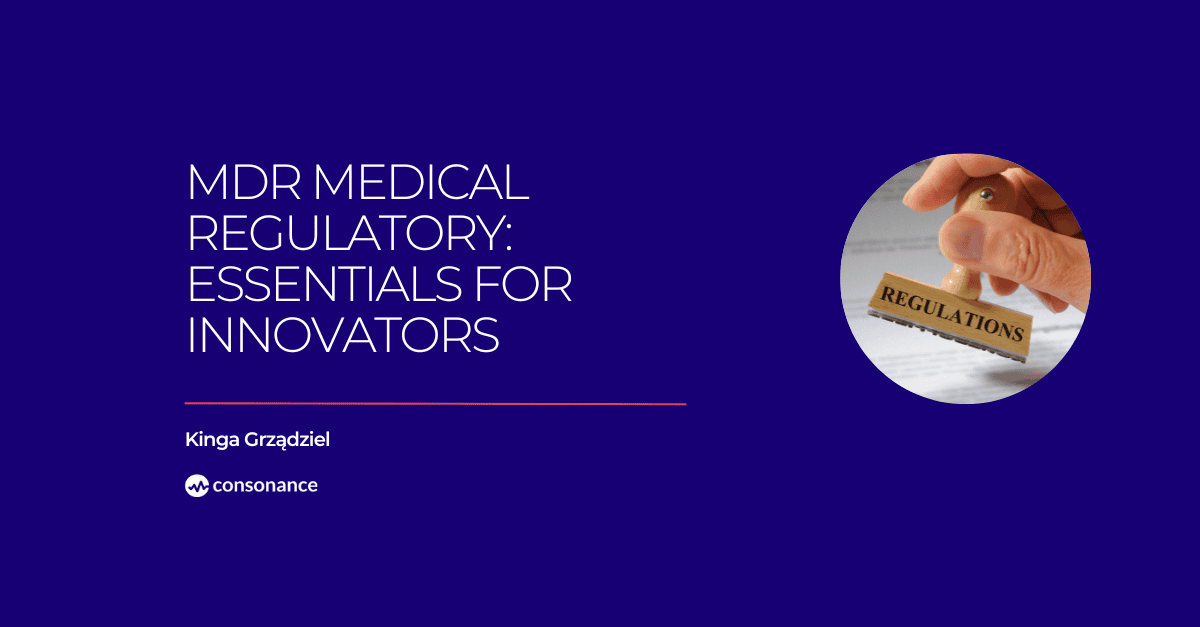 The MedTech industry is evolving rapidly, but no innovation can reach the market without meeting the necessary medical regulatory requirements. Understanding these rules is not just a legal obligation, it’s the foundation of patient safety and product credibility. In today’s article, I will focus on the medical regulatory essentials under the MDR in the European Union.
The MedTech industry is evolving rapidly, but no innovation can reach the market without meeting the necessary medical regulatory requirements. Understanding these rules is not just a legal obligation, it’s the foundation of patient safety and product credibility. In today’s article, I will focus on the medical regulatory essentials under the MDR in the European Union.
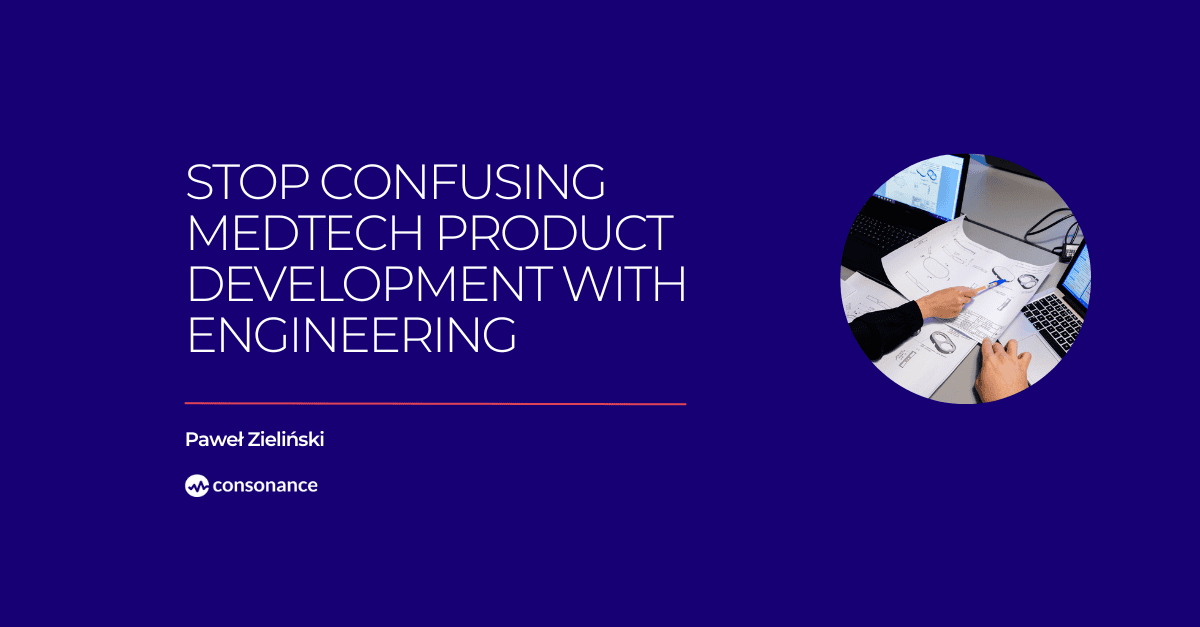 MedTech startups commonly say: “We’re developing the product”! – when the team is actually knee-deep in coding, CAD design, or PCB layout. While engineering is a crucial component, MedTech product development is a much broader, more strategic process. Mistaking one for the other isn’t just a semantic slip – it’s a costly error that can derail even the most promising innovations.
MedTech startups commonly say: “We’re developing the product”! – when the team is actually knee-deep in coding, CAD design, or PCB layout. While engineering is a crucial component, MedTech product development is a much broader, more strategic process. Mistaking one for the other isn’t just a semantic slip – it’s a costly error that can derail even the most promising innovations.


